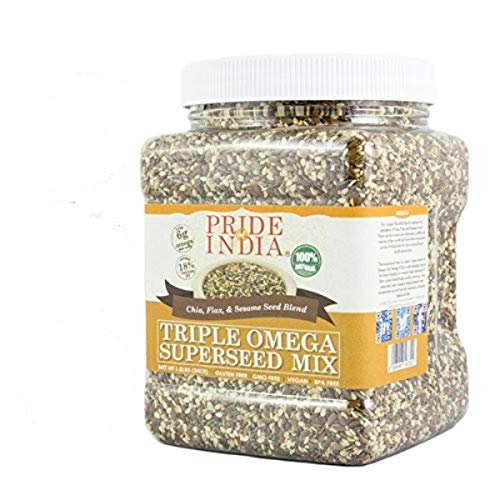Seed mixes are a fantastic way to add variety, nutrition, and flavor to your diet. Whether you're looking for a healthy snack, a topping for your favorite salad, or a protein boost for your morning smoothie, a good seed mix can do it all. But with so many options on the market, how do you choose the right one for you?
What To Consider When Shopping For the Best Seed Mixes
In this comprehensive guide, we'll break down the key factors to consider when purchasing a seed mix, so you can make an informed decision and enjoy the perfect blend.
Seed variety The first and most important factor to consider is the variety of seeds included in the mix. Some common seeds found in mixes are sunflower seeds, pumpkin seeds, flaxseeds, chia seeds, sesame seeds, and hemp seeds.
Each seed has its own unique nutritional profile, so it's essential to choose a mix that offers a balanced blend of vitamins, minerals, healthy fats, and protein. This will help boost immunity, improve digestion, and reduce inflammation while helping you stay energized and satisfied throughout the day.
Raw and roasted
Seed mixes can be found in both raw and roasted forms. Raw seeds are unprocessed and retain all their natural nutrients. Roasted seeds, on the other hand, are cooked at high temperatures, which can alter their nutritional content. Some people prefer the taste and texture of roasted seeds, while others opt for raw seeds for their nutritional benefits.
If you plan on taking seed mix to fill in nutritional gaps, opt for a raw seed mix. Roasted seeds have more calories and fat than their raw counterparts, which can cause weight gain if you eat too many.
Allergen information
If you have food allergies or sensitivities, it's crucial to check the allergen information on seed mix packaging. Some seed mixes may contain traces of allergens such as nuts, soy, or gluten due to cross-contamination during processing. Look for seed mixes that are clearly labeled as allergen-free to avoid indigestion or allergic reactions.
Taste and texture
The taste and texture of the seed mix are essential factors to consider, as they can greatly impact your enjoyment of the product. Some seeds have a mild, nutty flavor, while others are more robust and earthy.
Similarly, the texture can vary from crunchy to soft, depending on the seed type and preparation. Consider your taste preferences when choosing a seed mix, and don't be afraid to try a few different blends to find the perfect combination.
Versatility
A versatile seed mix can be used in various ways, making it a valuable addition to your pantry. Look for seed mixes that can be easily incorporated into your favorite recipes, sprinkled on top of salads or yogurt, or enjoyed as a standalone snack. The more versatile the seed mix, the more likely you are to use it regularly and reap its nutritional benefits.
Packaging
The packaging of the seed mix is an important factor to consider for both convenience and freshness. Resealable bags or containers are ideal, as they help keep the seeds fresh and protected from moisture and air. Additionally, consider the size of the packaging. If you plan to use the seed mix regularly, a larger bag or container may be more cost-effective and environmentally friendly.
Sustainability
As consumers become more environmentally conscious, it's essential to consider the sustainability of the seed mix you're purchasing. Look for brands that prioritize sustainable farming practices, such as organic, non-GMO, or pesticide-free seeds. Additionally, consider the packaging materials used, and make sure they’re recyclable.





